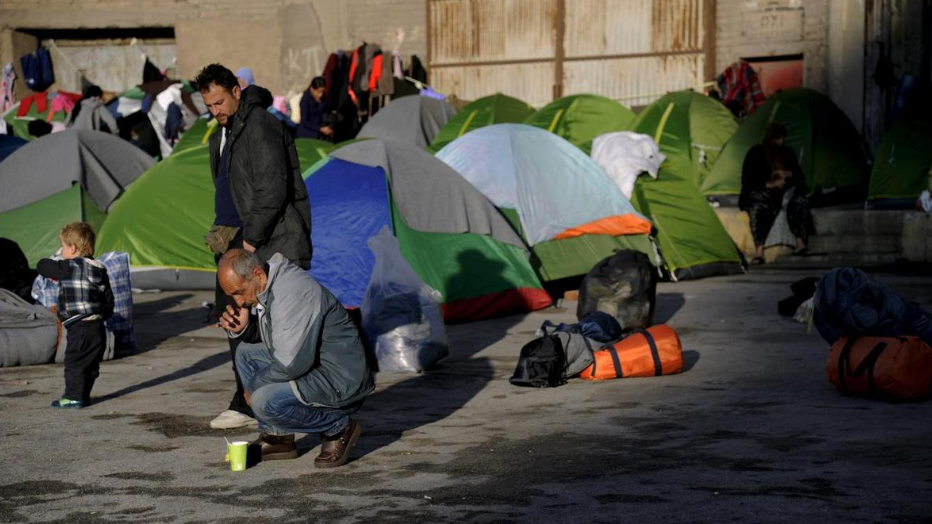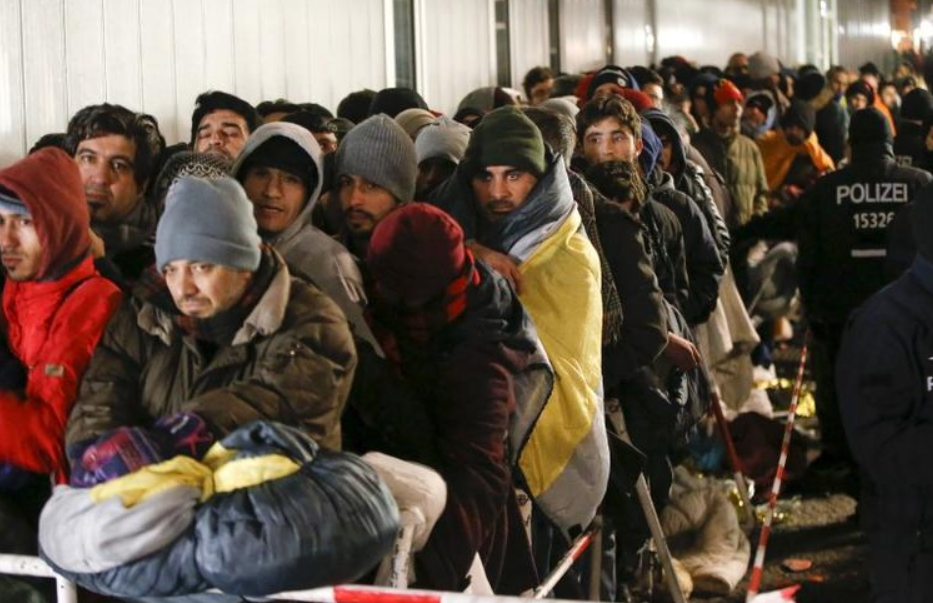Syrians camped on Turkey's border with Greece believe their hopes of finding sanctuary in the European Union (EU) are being undermined by the thousands of other migrants at the frontier who have relatively safe homelands.
Vastly outnumbered by Afghans and Pakistanis at the border, Syrians who have fled their country's protracted civil war say most of their fellow migrants are jumping on the bandwagon for economic reasons, and then pretending to be Syrian refugees.
"It makes me angry when I meet people from Morocco, Pakistan and even Afghanistan," said 20-year-old Yehya Rais from Aleppo, the scene of some of the heaviest fighting during the war.
"If only 2,000 to 3,000 Syrians were here, maybe Greece would open the border. They know we are genuine refugees," Rais said.

Refugees and migrants are seen by their tents, next to an old building at the port of Piraeus, near Athens, Greece, March 10, 2016. /Reuters
Refugees and migrants are seen by their tents, next to an old building at the port of Piraeus, near Athens, Greece, March 10, 2016. /Reuters
At a kiosk next door, North African migrants said they had come to the border without identification documents so they could claim to be Syrians and boost their chances of asylum - should they make it into the EU.
"Our leaders are corrupt so we have no chance of a decent living," said Moroccan Bader Abbasi. "If inshallah I make it to Europe I'll say I'm from Syria otherwise they'll send me back."
Thousands of migrants have been trying to get into Greece since Turkey said on February 28 it would no longer try to keep them on its territory, as it had agreed to do with Brussels in 2016 in return for billions of euros in aid.
Turkey said it could no longer contain the hundreds of thousands of migrants it hosts, especially with the likelihood of more refugees fleeing intense fighting in northwestern Syria, but Greece is trying to keep the migrants out. The EU at large sees Turkey's move as using the refugees as leverage to pressure Brussels, while Ankara accuses the EU of falling short on commitments of financial support.
In the face of the migrant crisis, senior government officials in Germany attempted to address the situation. Social Democrat state premieres on Saturday called for the country to take in vulnerable refugees from crowded reception camps in Greece, in the latest sign of discord in the ruling coalition over the prospect of a new refugee wave hitting Europe.

Migrants queue on a street to enter the compound outside the Berlin Office of Health and Social Affairs (LAGESO) for their registration process in Berlin, Germany, December 9, 2015. /Reuters
Migrants queue on a street to enter the compound outside the Berlin Office of Health and Social Affairs (LAGESO) for their registration process in Berlin, Germany, December 9, 2015. /Reuters
But since Chancellor Angela Merkel's 2015 decision to let in more than a million migrants, migration has been among Germany's most divisive issues, splitting her conservative party and fueling a far-right surge.
The Social Democrats, Merkel's national coalition partners, control seven of the 16 states that make up the German Federal Republic, and represent a more urban voter base which is more relaxed about immigration.
"Putting all political calculation aside, now is the time to act and at the very least get at least children and young unaccompanied refugees out of this situation," said Michael Mueller, mayor of Berlin.
In Saturday's statement, the left-wing premieres, including the mayors of the three city-states of Berlin, Hamburg, and Bremen, and the minister-president of Lower Saxony, a major industrial region, demanded a "pact of humanity" under which vulnerable refugees could be shared out across the country.
While immigration is a federal issue, Germany's states have great autonomy and control huge budgets that can be allocated to related areas ranging from refugee integration to healthcare and housing.
(With input from Reuters)